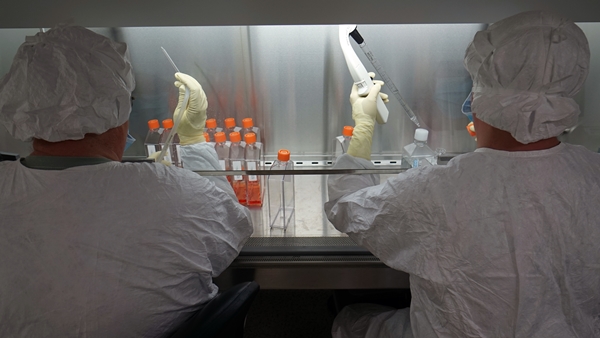3 April 2017. A new clinical trial is underway testing a Zika vaccine that uses genetically-engineered DNA to generate an immune response against the disease. The intermediate-stage trial is conducted by National Institute of Allergy and Infectious Diseases, or NIAID, part of National Institutes of Health.
The Zika outbreak is a current public health challenge, with cases in Brazil spreading to the Caribbean and the Americas, including the U.S. mainland. The Zika virus is transmitted primarily by aedes aegypti mosquitoes, the same species carrying chikungunya, dengue, and yellow fever pathogens. The virus may also be spread through sexual contacts. Most people contracting the Zika virus report symptoms such as mild fever, conjunctivitis or pink eye, and muscle and joint pain.
The current Zika outbreak, however, is resulting in increasing numbers of cases of birth defects, notably microcephaly and Guillain-Barré syndrome. Centers for Disease Control and Prevention, as of March 2017, counts more than 5,100 Zika cases in the 50 U.S. states and District of Columbia, and 38,300 cases in U.S. territories. As yet, no approved treatments or vaccines are available.
The new trial is testing a vaccine that genetically alters a circular piece of DNA found in bacteria and other organisms called a plasmid, to which the NIAID researchers added Zika genes from the surface of the virus. These genes encode two proteins, which when injected in a human recipient form into particles that appear enough like a Zika virus to stimulate an immune response, but not cause infection. NIAID says initial results from an early-stage clinical study testing the vaccine with 50 healthy individuals indicate the vaccine is safe and able to create an immune response.
The new trial will also test for the vaccine’s safety and immune response, but also in two dosage levels. The first part of the study is recruiting 90 healthy men and non-pregnant women in Houston, Miami, and San Juan, Puerto Rico, who will receive three injections, standard or high-dose, each four weeks apart. Participants will be tracked and evaluated for the next 32 weeks for adverse effects and receive counseling on preventing Zika infections.
The second part of the study plans to enroll 2,400 individuals, all healthy men and non-pregnant women, in the same three locations as the first part, but also from sites in Costa Rica, Peru, Brazil, Panama, and Mexico. In this stage of the trial, participants will be randomly assigned to receive either the test vaccine or a placebo in three injections, each four weeks apart. Persons taking part will be tracked for two years, and evaluated for adverse effects and signs of Zika infection, as well as counseling on preventing Zika infections. The study team will look primarily for confirmed Zika cases among test and placebo recipients to determine if the vaccine is effective.
The Miami segments of the study are being conducted by University of Miami’s medical school, led by Margaret Fischl, an infectious disease expert who heads the school’s AIDS research center. “The vaccine is really important in Miami,” says Fischl in a university statement, “because we saw the nation’s first cases of locally-acquired Zika, which needed a more immediate response.”
More from Science & Enterprise:
- Messenger RNA Engineered to Produce Antibodies
- Biotech Companies to Discover Ebola, Zika Vaccines
- Zika Vaccine Clinical Trial Underway
- Funds Provided for Developing RNA-Based Zika Vaccine
- Takeda Awarded $19.8 Million for Zika Vaccine
* * *


 RSS - Posts
RSS - Posts
[…] Zika DNA Vaccine Begins Clinical Trial […]
[…] vaccines, including one in development to protect against the Zika virus described recently in Science & Enterprise, are administered by injections that require refrigeration and trained clinicians. Formulating […]